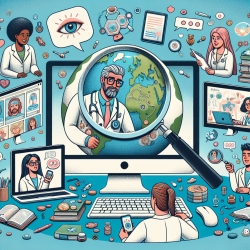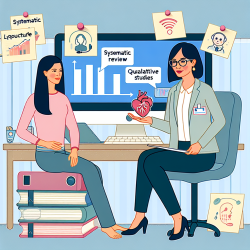The intersection of environmental sustainability and health is a growing field of interest, especially among students in health-related disciplines. A recent study titled A cross-sectional study on the knowledge of and interest in Planetary Health in health-related study programmes in Germany underscores the importance of integrating Planetary Health into educational curricula. This article discusses how speech-language pathologists (SLPs) can leverage the insights from this study to enhance their practice and promote sustainable health outcomes.
Planetary Health is an interdisciplinary field that examines the relationship between human health and the state of the natural systems on which it depends. The study surveyed 1,303 students in Bavaria, Germany, and found that while 73.8% of participants had not heard of Planetary Health, a significant 90.7% expressed interest in learning more. This data suggests a strong latent demand for education in this area, which is crucial for preparing future health professionals to address the interconnected challenges of environmental and human health.
Here are key takeaways for SLPs from the study:
- Relevance to Practice: The majority of participants (81.6%) considered Planetary Health relevant to their field of study. For SLPs, this could mean understanding how environmental factors such as air quality and climate change impact speech and language development.
- Educational Integration: 81.9% of participants indicated they would choose a Planetary Health elective if available. SLPs should advocate for the inclusion of Planetary Health topics in their training programs to stay abreast of emerging health risks and mitigation strategies.
- Holistic Approach: Planetary Health promotes a systemic perspective, understanding that human health outcomes emerge from complex interactions between natural and social systems. SLPs can adopt this holistic approach in their practice by considering environmental and social determinants of health.
Implementing Planetary Health concepts can be beneficial in several ways:
- Enhanced Patient Care: By understanding the broader environmental factors affecting health, SLPs can provide more comprehensive care. For instance, they can educate families about the impacts of pollution on respiratory health, which in turn affects speech and language development.
- Advocacy and Leadership: Health professionals, including SLPs, are in a unique position to advocate for policies that promote environmental sustainability. They can lead initiatives to reduce the ecological footprint of healthcare practices.
- Interdisciplinary Collaboration: SLPs can collaborate with other health professionals to address the multifaceted impacts of environmental change on health. This can lead to more integrated and effective interventions.
Given the growing interest and need for Planetary Health education, SLPs should consider the following steps:
- Continuing Education: Engage in professional development opportunities that focus on Planetary Health. This can include online courses, workshops, and seminars.
- Curriculum Development: Advocate for the inclusion of Planetary Health topics in SLP training programs. This will ensure that future practitioners are well-equipped to address these challenges.
- Community Outreach: Educate the communities you serve about the connections between environmental health and speech-language development. This can include informational sessions, brochures, and social media campaigns.
In conclusion, integrating Planetary Health into the practice of speech-language pathology can lead to more comprehensive and sustainable health outcomes. By staying informed and advocating for educational reforms, SLPs can play a crucial role in promoting the health of both individuals and the planet.
To read the original research paper, please follow this link: A cross-sectional study on the knowledge of and interest in Planetary Health in health-related study programmes in Germany.










